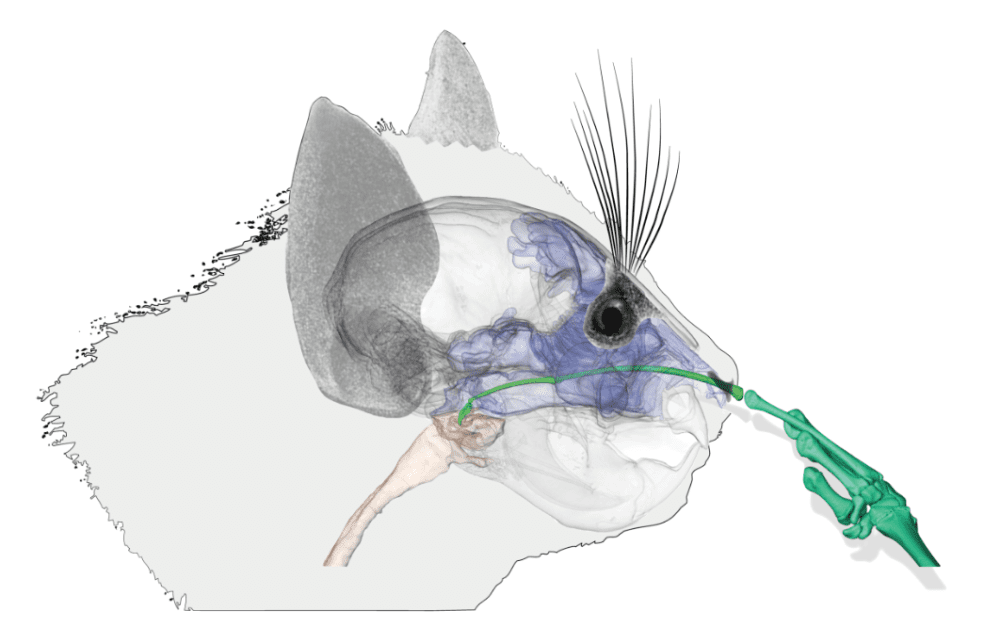Aye-ayes have specialized fingers which are incredibly long and narrow, enabling them to slip into small holes and dig out grubs for dinner. As it happens, those fingers are also very good for picking noses.
Noodly-fingered aye-ayes (Daubentonia madagascariensis) are a species of strepsirrhine primate whose closest relatives are lemurs. As nocturnal primates go, they are the world’s largest and arguably the least liked, having suffered from a folkloric reputation of being harbingers of death which sees them killed in certain countries.
Their long crooked fingers are partly what earned them this infamy, as it’s said that they use them to point out people marked for death. In fact, the aye-aye has other uses for this finger. They use it for skewering grubs that they then pop into their mouths, and new recordings show they also use it for a spot of nasal excavation.
The COVID-19 pandemic taught many humans what it feels like to have something hard and pointy gently scraping at what feels like the back of your brain, and CT reconstructions of the aye-aye’s nose-picking would indicate they know that feeling all too well.
The aye-aye’s finger makes up about 65 percent of the length of the hand and accounts for 40 percent of the total forelimb. That’s a lot of finger to be diving down your snoot, which is why researchers decided to make a CT scan reconstruction of how that might look. Prepare yourselves.

Did anyone consider employing aye-ayes for COVID-19 swabbing? A Fabre et al, 2022. Journal of Zoology. Images courtesy of the Natural History Museum
Beyond demonstrating how eye-wateringly far back an aye-aye can pick its nose, it also raises interesting questions about why this behavior is seen in so many animals (yes, including humans) if it doesn’t carry some sort of benefit.
“There is very little evidence about why we, and other animals, pick our nose. Nearly all the papers that you can find were written as jokes,” said lead author and curator of mammals at the Naturhistorisches Museum der Burgergemeinde Bern, Anne-Claire Fabre, in a statement emailed to IFLScience. Fabre is also a scientific associate of the Natural History Museum and associate professor at the University of Bern.
“Of the serious studies, there are a few in the field of psychology, but for biology there’s hardly anything. One study shows that picking your nose can spread bacteria such as Staphylococcus, while another shows that people who eat their own snot have fewer dental cavities.”
It’s possible that taking a little bit of bacteria caught by the clever filtration system that is your nose, and popping it into your mouth could carry some benefits with regards to populating the mouth with certain bacteria. Perhaps unsurprisingly, not many people have volunteered to dig into the gruesome topic.
The researchers found that at least 12 primate species have been named nose pickers, including chimpanzees and orangutans. Could it be that it has some perk for immunity or oral health? Or do they, as one study in the paper’s literature review suggests, just like “the texture, crunchiness, and saltiness of the snot”?
Good grief.
The study was published in the Journal of Zoology.
Source Link: Horrifying Images Reveal How Eye-Wateringly Far Back An Aye-Aye Can Pick Its Nose